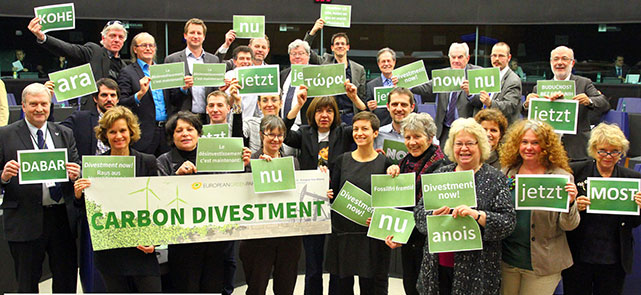Corporate Knights released a report this week pegging CPPIB’s potential losses at over $7 billion(US), the result of its high exposure to the fossil fuel sector and low exposure to green blue chips (large companies with at least 20 per cent of revenues from new energy or environmental solutions as identified by Bloomberg and FTSE).
Dan Madge, a spokesperson for the CPPIB, said the fund’s investment in Canadian equities closely resembles the broader TSX Composite, which is heavily weighted towards energy. Dropping a major sector from the portfolio “would not be prudent,” he said, adding that it would reduce diversification and prevent the CPPIB from engaging directly with energy companies on the need for better disclosure on climate risks.
“Engaging with companies on this topic and pressing for improvement are necessary to protect long-term value,” Madge said. “Selling our fossil-fuel holdings to investors who might not be as engaged as we are is not the most responsible course of action.”
Dropping a major sector entirely would indeed qualify as a radical move for an investor the size of CPPIB. However, doing nothing is arguably more risky than taking a page from the prudential policies of some of the most sophisticated institutional investors on the planet: Norway’s Oil Fund, the Dutch civil servants pension fund PFZW and French insurer AXA. All three of these investors are huge, have taken prudent measures to reduce – not eliminate – their exposure to the riskiest fossil fuel assets and are increasing their exposure to environmental solutions.
The Norwegian Oil Fund is still invested in what it believes to be the ‘best’ oil sands companies but has sold its stakes in five deemed to have unsustainable business models. It is also in the midst of unloading all companies that generate more than 30 per cent of their output or revenue from coal-related activities. In addition, its environmental related mandates in equity and bonds are set to increase in size and scope across renewable energy, water and waste management, energy efficiency and pollution control.
PFZW, the $183 billion Dutch pension fund, has pledged to halve its carbon footprint by 2020 while increasing its investments in climate solutions fourfold. The fund recently released a note outlining its plan to sell stakes in about 250 companies with relatively high carbon emissions. Coal producers will be mostly cut from the portfolio by 2020 and it will reduce investments in companies with fossil energy stocks 30 per cent by 2020.
AXA, the French insurer with $1.6 trillion in assets under management, is selling off its stakes in mining companies and electric utilities deriving over 50 per cent of their turnover from coal, while tripling its green investments.
The point regarding engagement is important, particularly for Canada – home to a large number of fossil fuel companies who will either build a bridge to the future by making investments in new energy today, or get stranded in the past. A great example is the proud century-old TransAlta Corp. Traditionally a coal power company, it decided to diversity over the past decade into renewables. Today, its $1.5 billion valuation is based almost entirely on its 70 per cent stake in TransAlta Renewables (valued at $1.99 billion), which it spun off into a separate listed company earlier this year.
An influential investor like CPPIB could play a constructive role by leading and co-investing with Canadian energy companies in their portfolio diversification to have more upside exposure to growing new energy markets. The leading part would be more effective if CPPIB had a stick and carrot. The stick is divestment, the carrot is capital. The upside is better returns and a better world.
How to make this happen? Two policies would help:
- The Minister of Finance Bill Morneau, a globally respected authority on pensions, could borrow a page from Norway’s Minister of Finance who recently instructed asset manager of Norway’s oil wealth to exclude coal companies from its portfolio
- The Minister of Finance could join France, which recently amended a law so that institutional investors are required to disclose their exposure to climate related risks, the GHG emissions associated with financial assets and the alignment of portfolios with the energy and ecological







